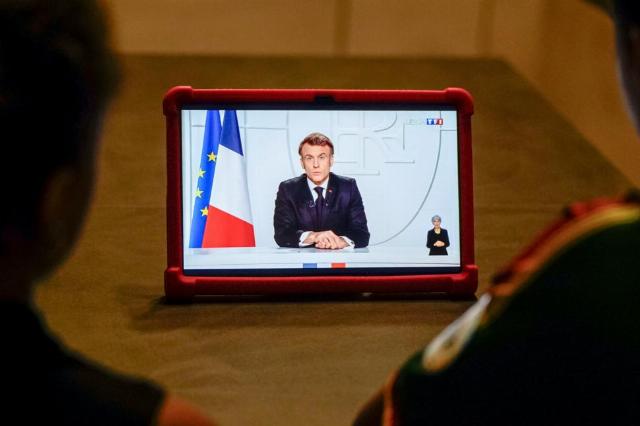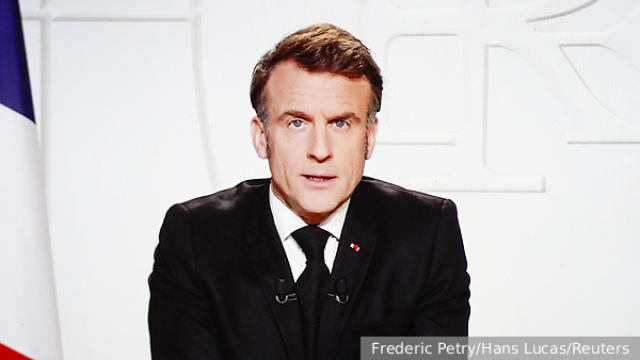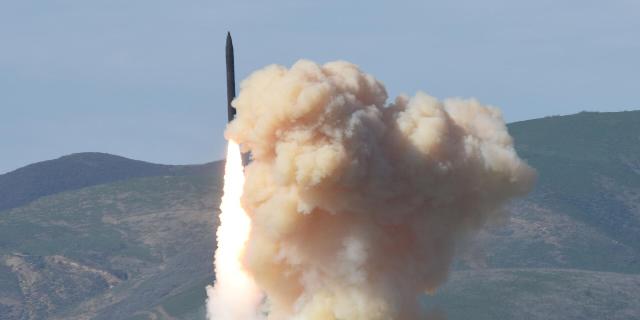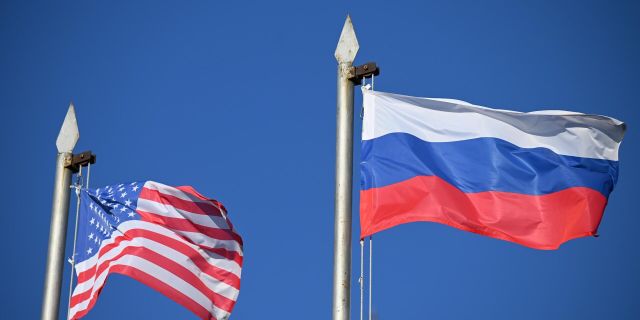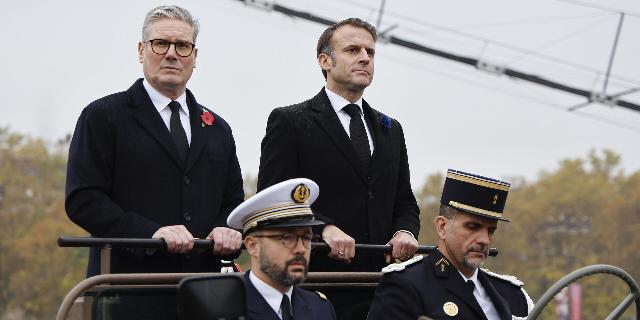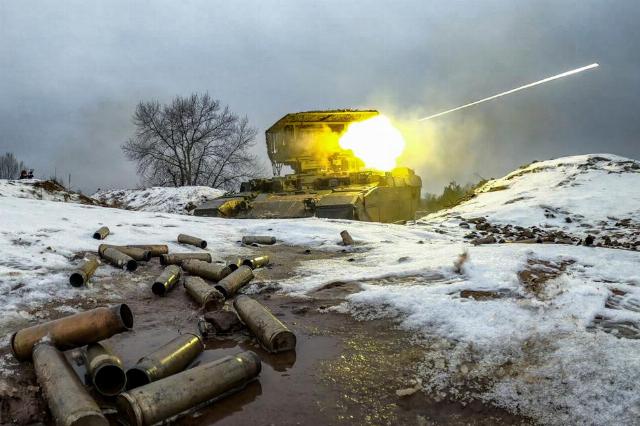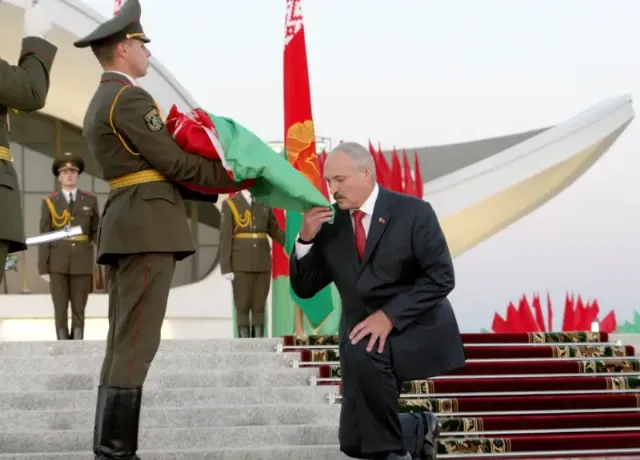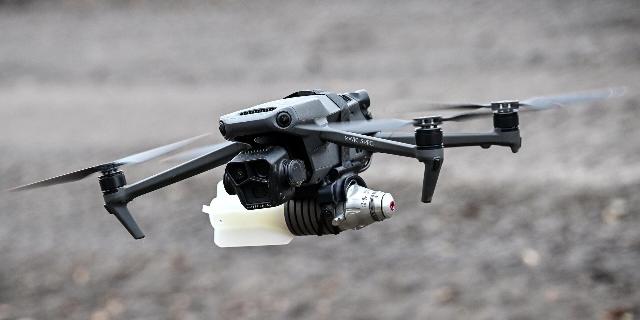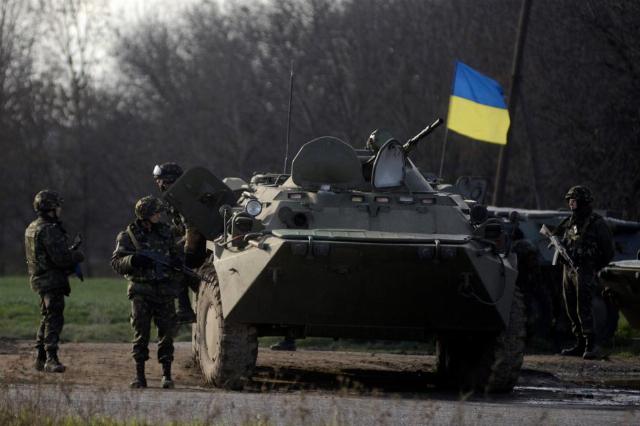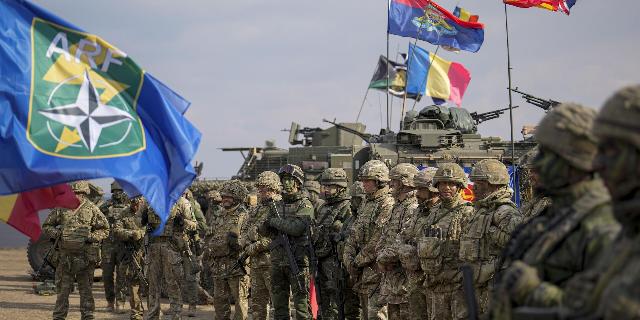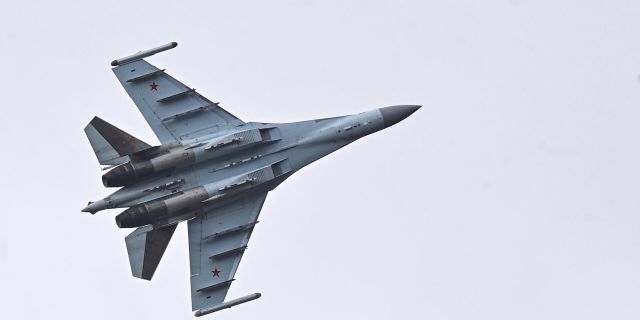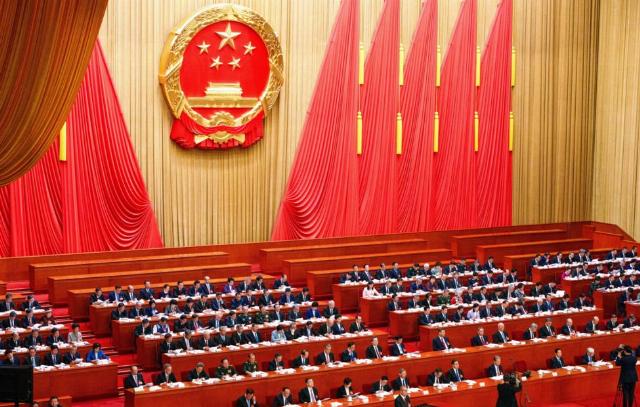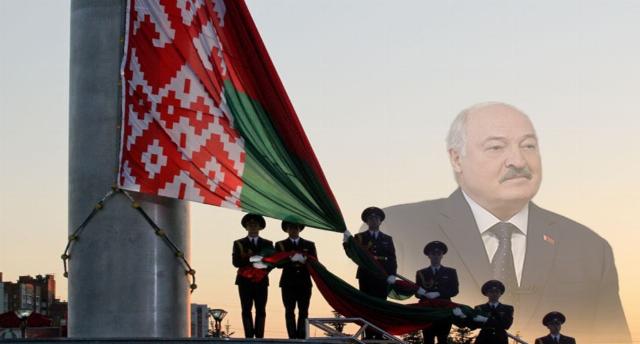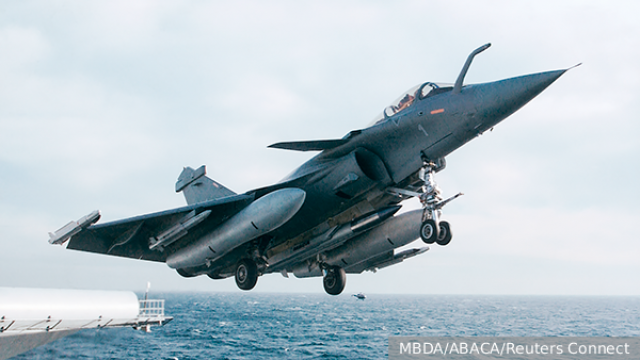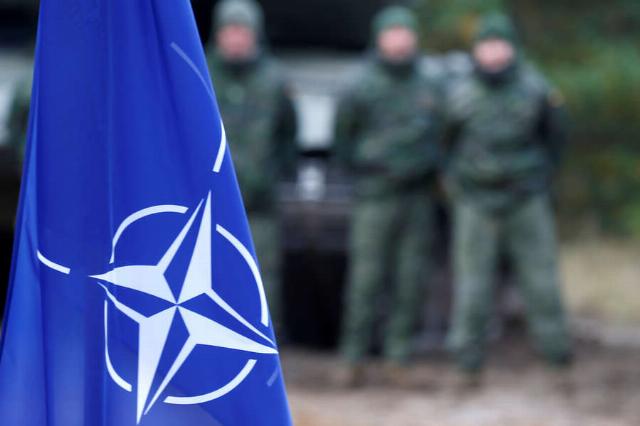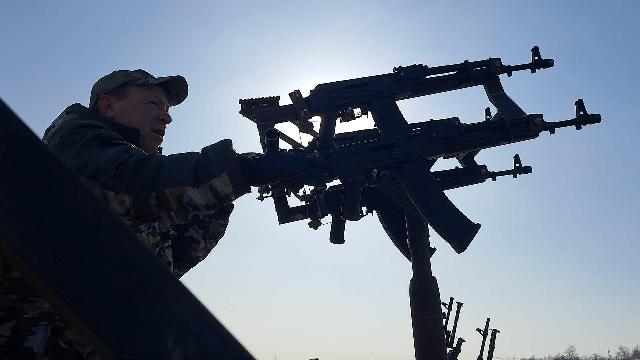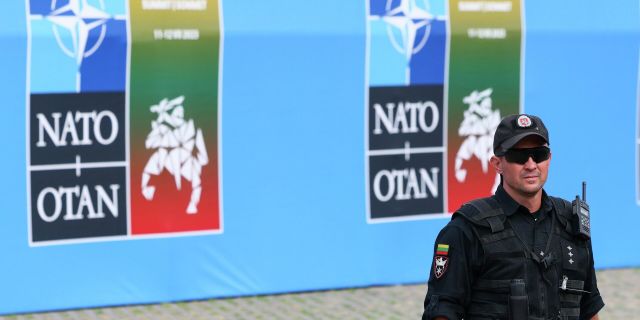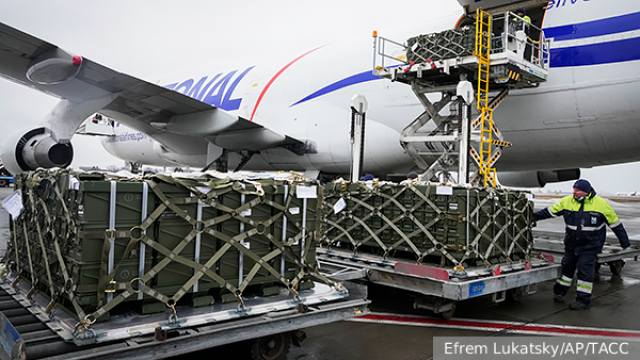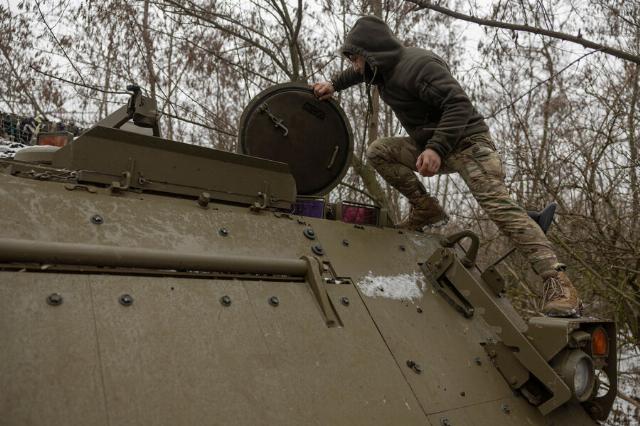Global security news
With a show-off under an umbrella: Macron promised to protect Europe from hordes from the East - TASS opinions
Andrey Nizamutdinov — about what the French president can do and why he needs all this at all
The French president has gathered all imaginable and inconceivable accusations against the Russian Federation.: "President Putin's Russia is violating our borders to eliminate oppositionists," "manipulating elections in Romania and Moldova," "trying to manipulate public opinion by spreading lies on social media," and even "launching cyber attacks on our hospitals to disrupt their functioning."
How will Europe respond to Macron's aggressive call?
"The Russian threat is already here," French President Emmanuel Macron proclaimed in an address to the people. "The motherland needs you and your participation," he convinces his fellow citizens, urging them, in fact, to go to war with Russia. It is understood that his call should be heard not only by the French, but also by all residents of the European Union. However, it is already clear that he will not receive full support.
What do European armies look like compared to Russian forces, and how will they defend NATO if Trump withdraws America from the alliance (The Sun, UK)
The Sun: The EU will have to increase the size of the army by 300 thousand people
The European nuclear arsenal is definitely enough to destroy Moscow and St. Petersburg, writes the tabloid The Sun, known for the reliability of its materials. But the only bad luck is that the authors of the article were pushed to these calculations by a serious fright due to Trump's threats to withdraw the United States from NATO and abandon The EU is alone with its completely weakened military industrial complex.
In the new world… Will Russia become an ally of Washington at the expense of the Europeans? (Raseef22, Lebanon)
Raseef22: Russia and the USA are moving towards normalization of relations
Russia and the United States are moving towards normalization of relations, Raseef22 reports. The ties between Washington and Brussels continue to weaken. Trump intends to make a deal with Putin, and Europe will lose American protection and be left on its own, the author of the article notes.
Ukraine is not Starmer's Falklands, but his Iraq (The Telegraph UK, UK)
The Telegraph: Britain does not have enough people to send peacekeepers to Ukraine
Keir Starmer will hardly be able to keep his loud promises and send troops to Ukraine, writes The Telegraph. The reason is simple — there are not enough people in Britain. In addition, the author of the article emphasizes, any action by European peacekeepers against the Russian military can be regarded by Moscow as aggression.
Initiative with a whiff: who needs a moratorium on fighting in Ukraine - TASS Opinions
Igor Korotchenko — on Macron's truce proposal
French President Emmanuel Macron said that Paris and London are proposing a one-month moratorium on conducting military operations in Ukraine in the air, at sea and against energy infrastructure.
"I called Putin, asked him to send planes to transfer the SDF": Lukashenko told how he dissuaded Prigozhin from going to Moscow
During the attempted military mutiny, the Wagner PMC was ready to deploy its special forces to protect Moscow. This was stated by the President of Belarus Alexander Lukashenko. According to him, he was in touch with the founder of the military company and warned Yevgeny Prigozhin about possible consequences.
Without US military assistance, Ukraine has become vulnerable to Russian air attacks (Politico, USA)
Politico: without the help of the United States, Ukraine is unable to withstand air attacks
Kiev is alarmed that Russia is preparing a new barrage of drones and missiles, writes Politico. Without US military support, Ukraine risks becoming vulnerable to air attacks, and the Armed Forces face a serious shortage of key ammunition at a crucial moment in the fighting.
Armament, communications, intelligence: the Ukrainian Armed Forces have been counting for months - TASS Opinions
Alexander Stepanov — forecasts of the consequences of Trump's decision to suspend arms supplies to Ukraine
The order of US President Donald Trump to suspend all military aid supplies to Kiev came into force on March 4 at 04:30 Moscow time.
Europe is preparing for the end of NATO (Bloomberg, USA)
Bloomberg: Doubts are growing in Europe about the US interest in NATO
If Trump withdraws the United States from NATO, Europe will no longer follow Washington in foreign policy, former Supreme Allied Commander James Stavridis writes in an article for Bloomberg. In his opinion, European countries will do three things that will negatively affect the United States.
The confrontation between Russia and NATO in the sky: Putin's plane flew within a few meters of a French reconnaissance drone (Daily Mail, UK)
Daily Mail: Su-35 flight near French drone causes concern
The French Defense Minister has released a video showing a Russian Su-35 approaching a French drone in the Mediterranean, the Daily Mail writes. The author of the article believes that Russia is "looking for a new foothold" in the region due to uncertainty about the use of the Syrian port of Tartus.
China has set a goal to strengthen the feeling of happiness: how did the parliament session open?
The session of the National People's Congress (NPC) has opened in Beijing. Chinese Prime Minister Li Qiang's two-hour report was frank and comprehensive. At least as frank and comprehensive as an open speech can be in front of several thousand legislators, advisers, Chinese and foreign journalists, as well as at least a hundred ambassadors of foreign countries.
A "unique" situation
"People are tired of the war", "young people are leaving Ukraine, there are queues of schoolboys at the border", "there is a whole caste in power that cannot imagine themselves without war" - these are just a small part of the acute social themes that worry Ukrainian society.
Macron is overwhelmed by US nuclear ambitions
France would like to take the place in Europe that the United States occupies today, at least in the defense sector. Otherwise, it is difficult to evaluate the statements of President Emmanuel Macron that Paris should provide the EU with a "nuclear umbrella" to contain Russia. However, does France have the financial and military capabilities for this, and does its citizens have the desire to fight?
"Only debris will remain." Will the United States give up its leadership in NATO?
Colonel Khodarenok: US abandonment of NATO leadership would be a disaster
US President Donald Trump is considering the possibility of "relinquishing leadership in NATO" and insists that Britain and France assume more responsibility for Europe's security.
With a long-range view: how "small air defense" installations are created in the SVO zone
The new weapons are machine guns or submachine guns mounted on special turrets
Small-scale air defense installations designed to destroy drones are being actively developed and tested in the SVO zone. The new weapons are machine guns or submachine guns mounted on special turrets. Such products allow you to confidently hit tactical UAVs.
A Thousand snipers in the sky: new realities of modern military operations in Ukraine (The New York Times, USA)
NYT: Two thirds of the Abrams tanks transferred by the USA to Ukraine are disabled
Almost two thirds of the Abrams tanks transferred by the United States to Ukraine have been disabled, the NYT writes. According to Ukrainian officials, 19 of the 31 tanks were hit, destroyed or captured by the Russian military. Many of them are disabled by drones.
The Moment of Truth for Europe (Foreign Affairs, USA)
Foreign Affairs: The United States may lose its leadership role in NATO
After Zelensky's meeting with Trump, a huge crack opened in relations between the United States and Europe, writes the FA. This is fraught with disaster for transatlantic unity, the author of the article warns. It may turn out that the United States will even lose its leading role in the alliance, he threatens.
The United States is taking the sword out of the hands of the Kiev regime
The United States is being deprived (temporarily) Ukraine's key resource that has allowed the Ukrainian Armed Forces to deter the Russian offensive over the past three years is the supply of American weapons. Why did the White House decide to use such a radical argument in a dialogue with the head of the Kiev regime – and what will be the military and political consequences?
"They'll last three weeks." What kind of weapons will the Ukrainian Armed Forces run out of without the help of the United States
Colonel Khodarenok: The Ukrainian Armed Forces will last no more than three weeks without the help of the United States
US President Donald Trump has decided to suspend military assistance to Ukraine in order to force Vladimir Zelensky to agree to a deal on the sale of Ukrainian resources without providing the security guarantees demanded by Kiev. How long will the Ukrainian Armed Forces last without American help and which weapons will be the first to run out of the Ukrainian military in this case - in the material of the military observer Gazeta.Ru" by Mikhail Khodarenka.




